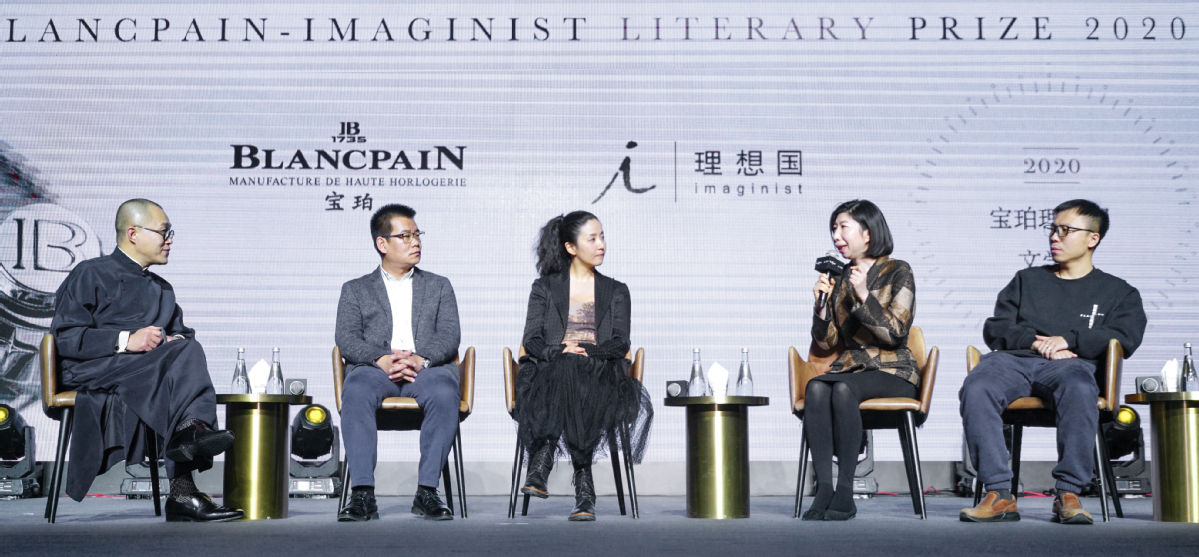 |
|
The four authors on the shortlist, Shuang Xuetao, Shen Dacheng, Lin Zhao and Xu Zechen (from right), receive the finalist certificate of the Blancpain Young Friend Award issued by host Leung Mantao (first left). [Photo provided to China Daily] |
Su used different types of clothes to describe his feelings of reading the five short-listed works. He compared The Hunter to a camouflage uniform that hides the author's real intention, one example being the third story in the book Wu Shu Jia (Martial Artist).
"Finishing writing that story, I felt that was a good year for me," Shuang said.
"I like it. I can still remember how I felt when I wrote it, not feeling tired. It conveyed what I wanted to say, and it's not long. This story carries secrets from within my heart such that I couldn't use simple language to shape it. It contains my view of the world. Just as Su Tong said, I didn't express it distinctly in the story, but with a bluffing shell. Under this shell, I could express myself freely and comfortably. If this story collection is a building, this story is a hall, because of which I wrote other stories set between 1911 and 1949.
"The Hunter is a book closest to my heart. Although the material is not what I have been most familiar with, it represents what I have been thinking and my recognition of fiction in the past two years."
The theme for this year's prize was "becoming contemporaries". Leung Mantao, chief consultant of Imaginist, said that this borrowed from the concept of the Italian philosopher Giorgio Agamben of "contemporary", which in essence means misfit.
"If he or she lives in this time and fits in it to a high degree so he or she believes everything advocated without any doubt and accepts everything naturally, then he is not a contemporary," Liang said.
"It's just like a fish in water that does not know it's swimming in water or the existence of water until it is caught and pulled out. Our relationship with the outside world is just like the one between fish and water. We exist in it but don't necessarily have a clear idea of it from more than one or two facets.
"So we need to be a bit heretical. To x-ray the essence of time and to understand it one needs to keep a distance to it. In that way one becomes a contemporary.
"We wanted to use such a theme to encourage all writers to reflect the time and our relationship with it."